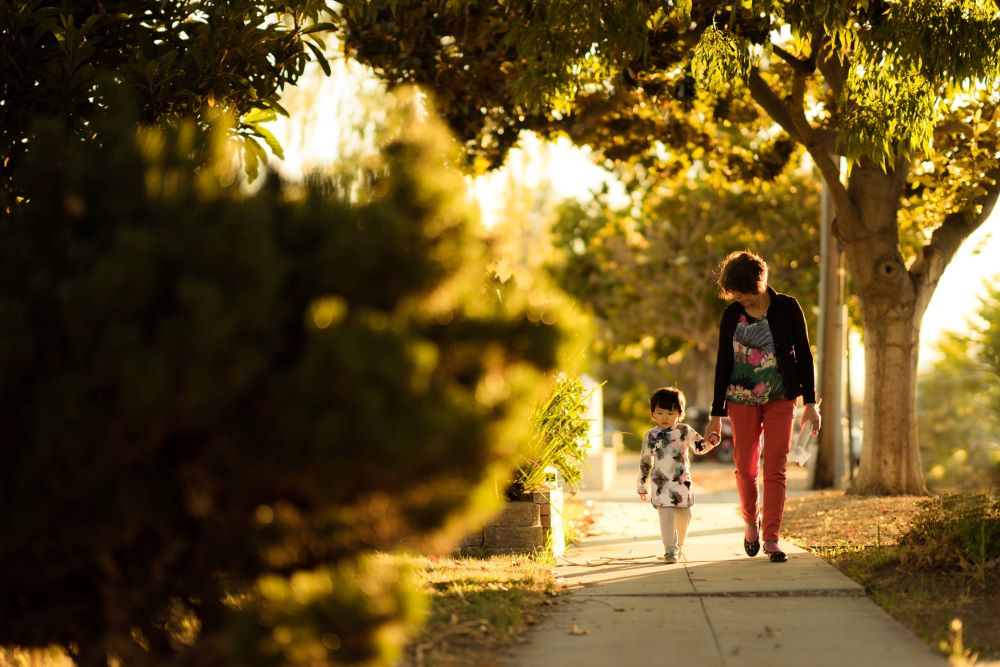
(Unsplash/Sue Zeng)
We knew early on that our son was as curious as he was observant. Nothing gets past him. There are the questions that a parent expects to come with this age. Then there are questions like, "Mama, have you ever been unhoused?" "Have we ever been unhoused?" "Has Papa ever been unhoused?"
Our son is young, but in the city of Chicago — where the Chicago Coalition for the Homeless estimated more than 68,000 people experiencing homelessness in 2021 — such questions start early.
As parents, we are trying to lean into his curiosity about being unhoused, but it never gets easier to hear such questions from a child.
It takes a breath or two before I can thoughtfully answer back that our families have been able to provide a roof over our head, and that it has taken some work. But that conversation also must include economic justice and the unfairness of housing insecurity. I have said things like, "Sometimes people really struggle to find a home. And sometimes people work really hard to help other people find a place to live."
I hope my son's curiosity continues to lead to compassion. It certainly leads me.
Given our city's statistics, talking about homelessness with our child was never a question of if, but when. I was raised during a time when people briskly passed a homeless person and never made eye contact. Stories I heard as a child usually included assumptions that unhoused individuals were drug dealers, or even just lazy. My husband and I have intentionally tried to shift the conversation to not revolve around shame. We knew that if we wanted to create a connection with humanity then we had to begin with our neighbors. We didn't want it to be an "over there" conversation, but rather one that’s "right here" in our neighborhood and in proximity.
And so we point out and talk about the unhoused population living underneath freeways that we pass to and from his school. We talk about the migrant crisis when we pass a police station with tents pitched on the sidewalk. We talk about food insecurity when we pass the tents pitched outside the Chicago Food Depository. As children are inclined to do, our preschooler asks questions about these things at every possible turn.
Recently we were driving in our neighborhood and I pointed out that a home was getting an upgrade and an addition. My son quickly added, "The unhoused migrants will have a place to live."
I hope my son's curiosity continues to lead to compassion. It certainly leads me. The depth of his investigation has me searching my years of pastoral ministry and engagement in Catholic social teaching for meaning, and for an opportunity to demonstrate what love can look like. It has me translating words and phrases from local news stories into "kid speak" that his brain can process. It invites me to share in his idealism and desire to care for our neighbors.
That's what church is, right? That's what this section of Matthew 25 explains to us:
"Lord, when did we see you hungry and feed you, or thirsty and give you drink?
When did we see you a stranger and welcome you, or naked and clothe you? When did we see you ill or in prison, and visit you?"
Advertisement
My preschooler won't necessarily name the fact that he has a longing to feed, to clothe and to house. But the longing comes in the form of drawings of scribbly castles where he would provide a place for the unhoused migrants. It comes in his generosity of wanting to empty his piggy bank to buy every unhoused person a new home. It comes because he never tires of talking about homelessness.
The challenge I face as his mama is to think about the proximity to the unhoused and how we might draw closer to our neighbors. I have searched for activities and volunteer work that we could engage in as a family. It might be hygiene kits we assemble. It might be heading downtown and offering kindness and conversation to folks we see on sidewalks and in doorways. It might be a food pantry or soup kitchen experience.
We have prayed for those struggling to find heat in cold months and for those who are sleeping outside. There are no easy answers to give our child; and if my husband and I are parenting him honestly, the questions only reveal more truth about our broken systems and our fragmented society.
Our faith begs us to always lead with love. I like to think we can also lead with scribbly castles.








